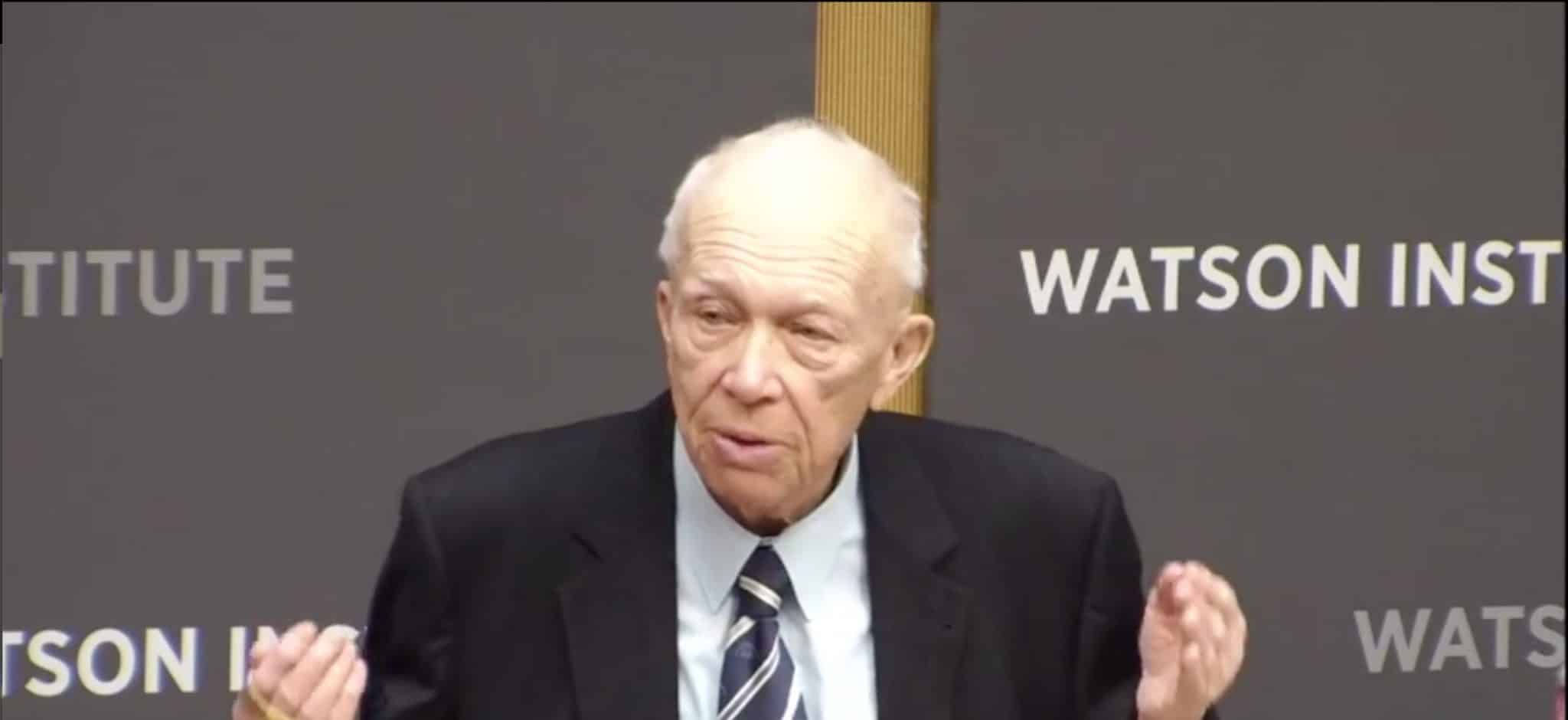I used to enjoy skewering the Washington Post with what I believed to be a biting satire of the Swiftian sort, minus the scatological obsession. This is no longer possible, however, for every item in the Post is a satire all on its own and incapable of enhancement by the application of wit.
Res ipsa loquitur, as we say in the legal profession. I retired years ago, and it’s about the only Latin phrase I remember. It means “the thing speaks for itself.” You can’t make this stuff up. A glance at the headlines on any page of the Post will cause me to spit out my coffee before rolling on the floor and laughing my ass off — or ROTFALMAO when translated into texting.
But Friday morning I actually came across something interesting and informative. It must have slipped by the Post’s editors. It was an obituary of Sergei Khrushchev, at the age of 84. He’s the son of Nikita Khrushchev, the one-time leader of the Soviet Union, best known for announcing at the United Nations, whilst banging his shoe on the table, his intent to bury America, and also for offering to meet Jackie Kennedy, our then-First Lady, in the bedroom.
Americans snickered at this suggestion by a short, crude, fat guy, but then Jackie went on to marry Aristotle Onassis after her tall, handsome, if insufficiently wealthy, husband was tragically killed. But I digress.
Accompanying his dad on diplomatic missions, Sergei got to see a lot of the world, and what he saw led him to conclude that communism “is not effective in any society.” And so he immigrated to the United States.
Before all that, in 1959, Sergei and his dad got to scope out the United States. They looked into the faces of Americans and concluded that we were not a warlike people. “We decided that the message was that these people would not want to attack us at home. They did not want war. They were content, and seemed satisfied to be getting rich.” This is a discussion-worthy insight. Where a people’s basic needs are fulfilled, and they have the possibility of acquiring more stuff, there is little interest in making war on their neighbors.
Notwithstanding the little misunderstandings between America and the Soviet Union that almost led to an all-out nuclear war in 1962, Nikita told his son that he trusted the American president. “I think he’s an honest man,” he said.
Sergei believed that, had his father lived long enough, he would have seen that “capitalism ended up working better, [and] maybe he would have come to America too.” Well, yes. There are not many people living in communist countries who wouldn’t jump at the chance to come to America.
Maybe it was the peaceful transfer of power at the end of an American president’s term in office that helped persuade Sergei of the virtues of our liberal democracy, for it had been different in the Soviet Union. Sergei was relieved that, when Nikita was disembarrassed of his office by other communist officials, he was merely fired. “If Stalin had lived five more years, there is no doubt that we would not be here speaking,” he said. “You could not just be fired from the job. You would be eliminated. And so would your family.”
That does seem a little harsh, doesn’t it? Let’s ask the Squad what they think.
Near the end of his life, Sergei became pessimistic about Russia’s future under Vladimir Putin. “The foundation of a democracy is law,” he said. “There are many questions to whether that’s being upheld in Russia right now.”
Alas, Sergei, may you rest in peace. There are many questions as to whether or not the rule of law is being upheld in blue American cities right now, when the foundation of our democracy is being rent asunder by mobs before our eyes. We watch them nightly on our televisions, even as we enjoy our riches.
























